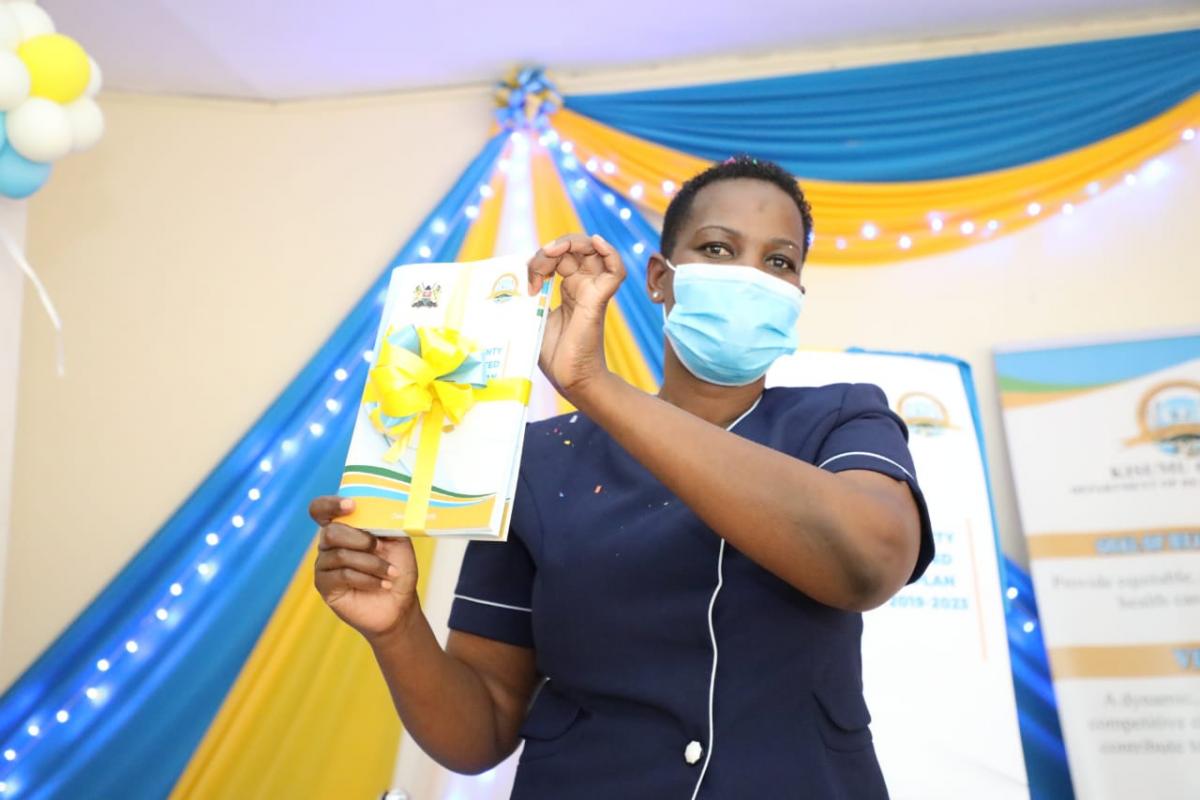
On June 4, 2020, the County Assembly of Kisumu allocated 60 million Kenyan Shillings (US $560,000) for reproductive, maternal, newborn, child, and adolescent health (RMNCAH) for the first time. Two months later, on August 12, 2020, the Kisumu County Department of Health launched its first ever family planning costed implementation plan (2019-2023) (CIP). Both actions lay the foundation for the county to include family planning in their upcoming universal health coverage (UHC) benefits package.
In December 2018, Kisumu was one of four counties selected by the national government for a UHC pilot program in Kenya. The pilot gave county residents access to a range of affordable health care services in public facilities. However, stakeholders found that the pilot omitted covering family planning services and supplies within primary health care. As the pilot was underway, civil society partners engaged with local health officials to make a case for the county to increase their investment in primary health care, particularly family planning.
Meanwhile, Kenya’s ministry of health announced that the scale up of the national UHC program would have the same coverage as the pilot, leaving gaps for primary health. In response, the Kisumu county government announced their own plans to develop a county-specific UHC program to cover the gaps.
To prevent the further omission of family planning within UHC, KMET—a sexual and reproductive health service provider and advocacy organization based in Kisumu—rapidly mobilized local civil society and government to realize the county’s commitments, with support from Advance Family Planning’s Opportunity Fund. In early 2019, the county department of health conducted a landscape assessment, which recommended that the county focus on primary health care and make strategic investments in RMNCAH. The assessment highlighted that the county had no family planning CIP and no annual budget allocation for family planning, two factors that would strengthen the case to include family planning in Kisumu’s UHC benefits package.
KMET’s longstanding relationship with the county government enabled them to share evidence highlighting the need for a discrete RMNCAH budget in late 2019. The Chief Officer of Health and Sanitation approved the RMNCAH budget proposal in June 2020 for fiscal year 2020-21.
In six weeks between October and December 2019, KMET and partners supported the county department of health to develop their first family planning CIP. KMET leveraged resources and expertise within the Sexual and Reproductive Health and Rights - UHC Alliance to support the county. Through a series of consultative meetings, partners reviewed international, national, and county policies, strategies, and guidelines to inform a three-day stakeholder meeting. Then KMET worked with a small team led by the department of health to compile and draft the plan.
The team made sure to link the CIP’s objectives with the county’s existing integrated development plan to encourage sustainability of support for implementation. The objectives outline five strategic action areas to reposition family planning: contraceptive security, capacity building, service delivery, advocacy, and information management. The Chief Officer of Health and Sanitation approved the CIP in January 2020, but the official launch was delayed until August due to COVID-19 and staff changes within the county government.
Now that the county has approved the CIP and made a direct allocation to RMNCAH, KMET and partners are engaging with the county to ensure the allocation is disbursed and that another allocation is committed during the fiscal year 2021-22 budget process. They will also continue to support the Kisumu County Department of Health and Sanitation in their ongoing development of the UHC benefits package as a part of the UHC Engage project with support from PAI. In addition, the Sexual and Reproductive Health and Rights - UHC Alliance is working with national coalitions to advocate for the inclusion of family planning within the national UHC benefits package currently in development.
The Opportunity Fund, managed by PAI with funding from Advance Family Planning, is a small grants program that helps advocates seize opportunities to accelerate Family Planning 2020’s success at district, state, national, and regional levels. Find more information about how to apply here.

